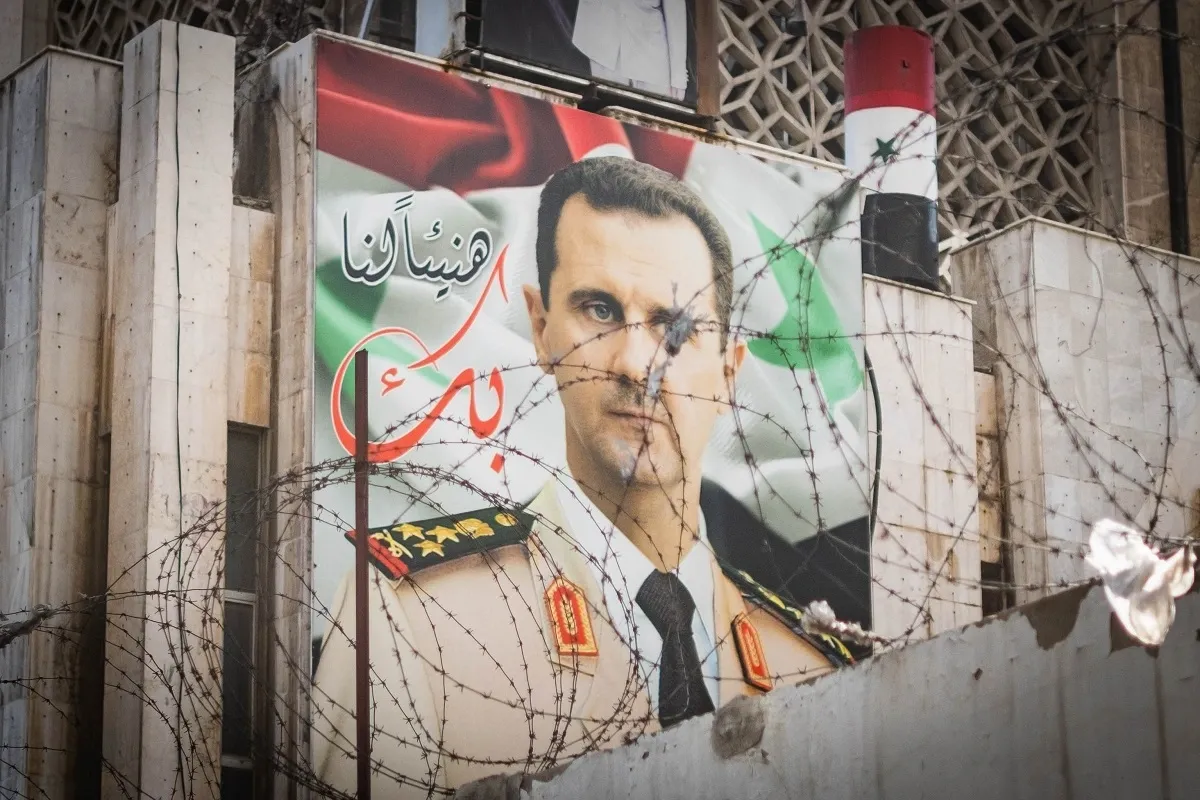Trending
Bashar al-Assad flees to Russia: What is happening in Syria? Who will now rule the country?
.png)
4 min read | Updated on December 09, 2024, 15:27 IST
SUMMARY
India has called for preserving Syria's unity, sovereignty, and territorial integrity following the dramatic fall of President Bashar Assad's regime.

Syria President Bashar al-Assad fled to Russia after rebel forces, led by Hayat Tahrir al-Sham (HTS), captured Damascus, ending 50 years of his family's rule.
India on Monday underlined the need for all parties to work towards preserving the unity, sovereignty and territorial integrity of Syria after President Bashar Assad fled to Russia on Sunday, bringing a dramatic end to his family’s 50 years of iron rule.
“We are monitoring the situation in Syria in the light of ongoing developments,” the ministry of external affairs said in a statement.
“We advocate a peaceful and inclusive Syrian-led political process respecting the interests and aspirations of all sections of Syrian society. Our Embassy in Damascus is in contact with the Indian community, for their safety and security,” it added.
What happened in Syria?
For decades, Bashar Assad ruled Syria with an iron fist. However, a massive rebellion that started in late November swiftly gained ground, leading to the fall of his regime. The insurgent advance was rapid, with key cities like Aleppo, Homs, and Hama falling in days. Government forces crumbled under pressure, abandoning equipment and posts. International backers of Assad — Russia, Iran, and Hezbollah — withdrew support amid mounting regional conflicts.
By Saturday, rebel groups had entered Damascus, marking the end of Assad’s rule.
The fall of Damascus marks a seismic shift in Syria’s trajectory after nearly 14 years of civil war that left hundreds of thousands dead and displaced millions. With Assad now in Moscow under Russian asylum, attention turns to the fragmented groups vying for power and international actors reconfiguring their strategies.
Scenes of jubilation erupted across Damascus as rebels, led by the powerful Islamist faction Hayat Tahrir al-Sham (HTS), declared victory. Crowds cheered under the revolutionary flag, celebrating what HTS leader Ahmad al-Sharaa, formerly known as Abu Mohammed al-Golani, called a “victory for the Islamic nation.” The HTS chief said Assad had made Syria “a farm for Iran’s greed.”
Who will rule Syria now?
The swiftly moving events raised questions about the future of the country and the wider region. US President Joe Biden hailed Assad’s removal as a “fundamental act of justice” but warned of the “risk and uncertainty” ahead. The United Nations has called for urgent talks in Geneva to facilitate an orderly political transition, while Qatar has convened regional powers to mediate stability.
Russia, meanwhile, has sought assurances from insurgents for the safety of its military and diplomatic installations in Syria. Russian agency RIA, citing an unidentified source at the Kremlin, said Syrian insurgents had guaranteed the security of Russian military bases and diplomatic posts in Syria.
The spotlight is on Ahmad al-Sharaa, who has attempted to rebrand from his extremist past as an al-Qaida affiliate to a pragmatic leader promising pluralism. His HTS group, considered a terrorist organisation by the US and the UN, now controls Damascus and has pledged tolerance and inclusivity.
Ahmad al-Sharaa, who for years used the nom de guerre Abu Mohammed al-Golani, decided to split first from the nascent Islamic State group, and then in 2016 from the global al Qaeda organisation. It went through several name changes, eventually rebranding as HTS, as it became the strongest group in the main rebel enclave around Idlib province in the northwest. Sharaa has presented a more moderate image during the lightning campaign that brought down Assad, but some Syrians will probably remain fearful about his ultimate intentions.
“Syria deserves a governing system that is institutional, no one where a single ruler makes arbitrary decisions,” he said in an interview with CNN last week, offering the possibility HTS would eventually be dissolved after Assad falls.
“Don’t judge by words, but by actions,” he said.
What challenges does Syria face?
Syria’s rebellion involved many groups, each with different goals. Alongside HTS, other players include the Turkey-backed Syrian National Army (SNA) and the Kurdish-led Syrian Democratic Forces (SDF). Coordinating between these groups will be challenging.
Syria is home to a diverse population, including Sunnis, Alawites, Kurds, and Christians. Ensuring fair representation for all groups will be crucial for lasting peace.
Years of war have left millions displaced and infrastructure in ruins. Providing food, shelter, and medical aid is an urgent need.
US-backed Kurdish groups in the northeast, Turkish-supported opposition forces in the north, and remnants of the Islamic State remain active. Balancing these influences while maintaining Syrian sovereignty will be a delicate task.
By signing up you agree to Upstox’s Terms & Conditions
About The Author
Next Story

